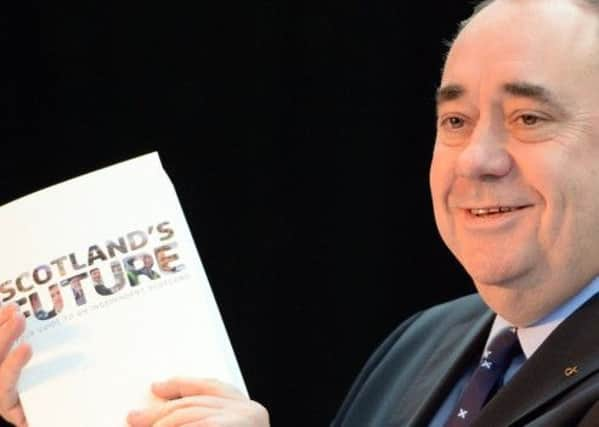Barnett Formula ‘could face review’ post-No vote


And Holyrood should “forget” about making use of historic new tax raising powers being transferred to Scotland in 2016 without greater clarity about the impact on Scotland’s “block grant” from Westminster. Professor David Heald, a former World Bank and United Nations advisor, said he wants greater devolution to be a success, but voiced concerns during an appearance before Holyrood’s finance committee
Scots enjoy £1,300 more spending per head on public services such as the NHS and schools than the average UK citizen as a result of the Barnett Formula which distributes spending across the UK. But critics say it is “out of date” and should be reviewed, prompting concerns this would cut public spending in Scotland by £4 billion.
Advertisement
Hide AdAdvertisement
Hide AdBut Prof Heald told Holyrood’s finance committee that change is coming.
“I do think that there will be big pressure - post referendum - in the case of a No vote to actually have a review of Barnett,” he said.
“When people talk about a review of Barnett, they usually mean cutting Scotland’s spending, because they’ve already decided before the needs assessment takes place that Scotland gets too much.”
The main Westminster have all said they have no plans to review the Barnett Formula.
But Prof Heald said it would “re-emerge” as a live issue if Scots reject independence.
“If the answer is no, I think we’re at a critical juncture,” he added.
The Accountancy professor from Aberdeen University has previously suggested change to the formula which would have appeased grievances, particularly in Wales, that it loses out to Scotland. But he claims the Labour government “froze all debate” on the issue.
And MSPs should be wary of new tax powers they will be handed next year when income tax levels will effectively be cut by 10 pence in Scotland, with Holyrood then responsible for raising it back up to the required level in line with need.
Advertisement
Hide AdAdvertisement
Hide AdProf Heald warned that if Scotland decides to raise or cut income tax from the UK level, it could see “adjustments” to its block grant from Westminster which would level out any change on public spending.
He added: “The Scottish Parliament should forget completely about the Calman tax powers or income tax powers, if you don’t get transparency about the grant.”
He suggests that the UK Budget should be brought forward before Christmas so that Scottish ministers know what UK tax rates are likely to be before setting their own rates.
SEE ALSO